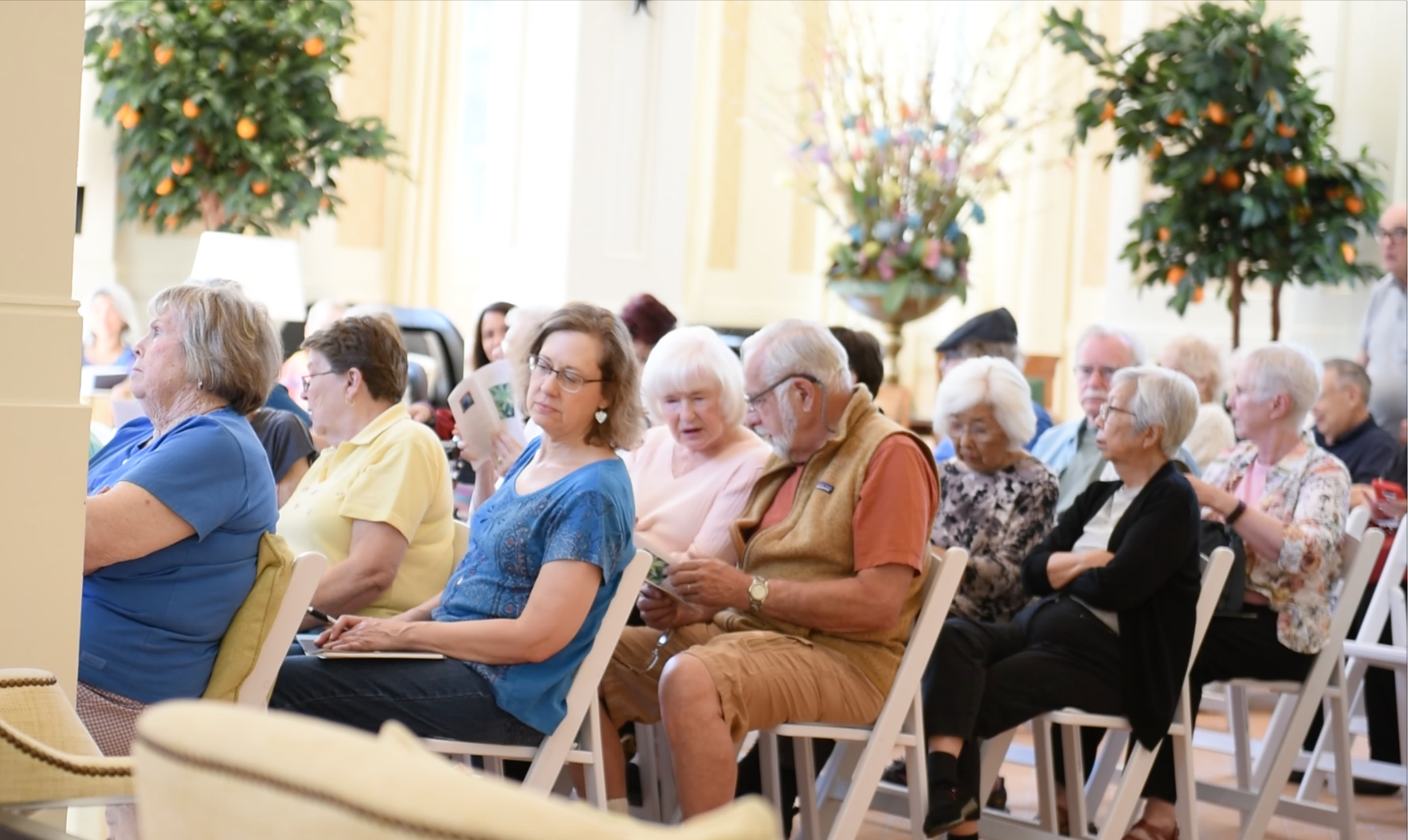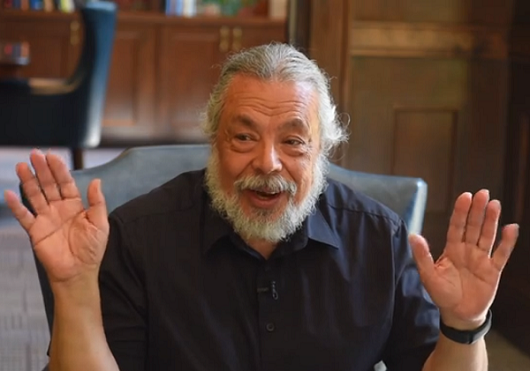
Kenzie Bruce

Audio By Carbonatix
When over sixty people attended a presentation on weed and pain management at Louisville’s Balfour Senior Living late last month, most of them were joking about coming for the free samples as they settled into their seats. The audience, mostly made up of seniors who live at facility or people with elderly relatives looking for information, asked a number of questions covering the basics of using cannabis to treat medical issues, including how to get started.
The answer: not cheaply.
Dr. Joseph Cohen, an obstetrician for 35 years before becoming a cannabis practitioner, explained how cannabis can be used to manage pain and other issues the elderly can experience. According to a 2012 survey by the National Institute of Health, more than 11 percent of American adults have had pain every day for three months, and more than 17 percent had severe pain.
Cohen offers half-hour and one-hour evaluations with physicians in his office, which include a full consultation that would provide recommendations on what medical marijuana products to use and how to use them. His office also helps patients fill out the state-required paperwork to get a medical marijuana card. A half-hour visit costs $150, and an hour is $300.
Insurance in America doesn’t cover the consultation or the medical marijuana itself thanks to its federal illegality, unlike in Canada, Cohen said, where the consultation is covered and patients get an annual allowance of $2,000 for their medication. “How do we change that?” one woman asked.
“I think the first thing you do is get rid of Jeff Sessions,” Cohen answered, referencing the United States Attorney General, who recently reversed nine years of federal guidelines meant to protect compliant marijuana consumers and businesses in states where it’s legal.

Dr. Joseph Cohen.
Kenzie Bruce
Cohen went through each way people can use marijuana, recommending that seniors or new users stick with topical application, vaporizing flower (not concentrates), or using intraoral methods like tinctures and sprays. These methods have the least negative side effects for the fast-acting pain relief they can provide, he said.
Another person asked whether taking cannabis can interact negatively with other medications. Cohen explained that it rarely does, but there are some that require caution. Cannabis affects liver absorption, he said, so it could potentially affect the absorption of anti-seizure medications or blood thinners, but it’s still “extremely rare.” Cohen says his office doesn’t supervise decreasing opioid use, telling patients they need to see their prescribing doctor to start that process. However, he believes his patients typically lower their opioid dosage very quickly after first use, and adds that cannabis can help ease the side effects of opioid withdrawals.
Cohen treats a lot of cancer patients at his office, but said his team has trouble figuring out what specific dosages work for certain types of cancer because of the limited clinical studies available on the treatment. However, he explained that cannabis can help cancer patients in three ways:
- During apoptosis, or programmed cell death, cannabis can kill cancer cells only.
- During angiogenesis, a process that increases blood supply to cancer cells, cannabis can turn off that blood supply and starve the cancer cells.
- Cannabis can turn off ID1 genes, which promote the growth of tumors.
“What we see, with a variety of different cancers, [is that] you may not have any response,” Cohen explained. “But you may have a dramatic response. We’ve seen stage-four reversal.”
Don Ruscio, 83, went to the presentation to hear more about the state of cannabis and cancer treatment. He lost his daughter, Melanie Ruscio, to adrenal-gland cancer in 2016, and wishes people were able to do more research on the issue. His daughter used cannabis salve to get through her work days, but Don says the cancer was too far along to be affected by the treatment. Now, though, he feels that cannabis practitioners “are going in the right direction.”
People using cannabis to treat cancer – not just the effects of chemotherapy – will use a dose of around 200 milligrams per day, Cohen said. They’ll ingest concentrated oils orally with a syringe, using 1:1 or 2:1 ratios of CBD to THC, and increasing the dose gradually. THC and CBD seem to affect certain cancers more than others, according to Cohen.
Most people think of CBD, a non-psychoactive compound in cannabis, as the medical part of the plant. CBD can be anti-inflammatory, Cohen said, as well as analgesic, antispasmodic and immunosuppressive. However, Cohen compared THC and CBD to yin and yang. “In Chinese philosophy, yin and yang describe how seemingly opposite or contrary forces may actually be complementary,” he said. “What we’ve found over the years is that a combination is the most therapeutic.”
But some people want to stay away from THC, the main psychoactive element in cannabis, altogether. Betsy Becker, 83, found a CBD-infused salve for $35 that helps the chronic pain she suffers in her lower back from scoliosis and a pinched nerve. The store she shopped at stopped selling the salve, though, and she hasn’t been able to find a replacement since. “It’s very difficult to buy CBD without THC in it,” said Becker, who worked as a pediatric nurse and has seen marijuana help chemotherapy patients. Still, she said she felt “mixed” about CBD after the presentation.
Cohen started using cannabis to treat his own migraines when he accidentally found a strain meant for that purpose, saving him from reaching for sumatriptan, a common migraine medication. “About a year ago, I started to take CBD twice a day, every day,” Cohen said, “and for the first time in my memory, in my life, I don’t have any migraines.” He started giving cannabis presentations for seniors at Balfour in August with cannabis tablet company Stratos, and has continued to give them since.
According to research from neurologist Ethan Russo, cannabis has twenty times the anti-inflammatory power of aspirin and two times the anti-inflammatory power of hydrocortisone, a steroid drug. “Steroids are dangerous drugs. … They throw your whole system out of whack,” Cohen said. “Why not use something that’s safe and give that a shot first?”